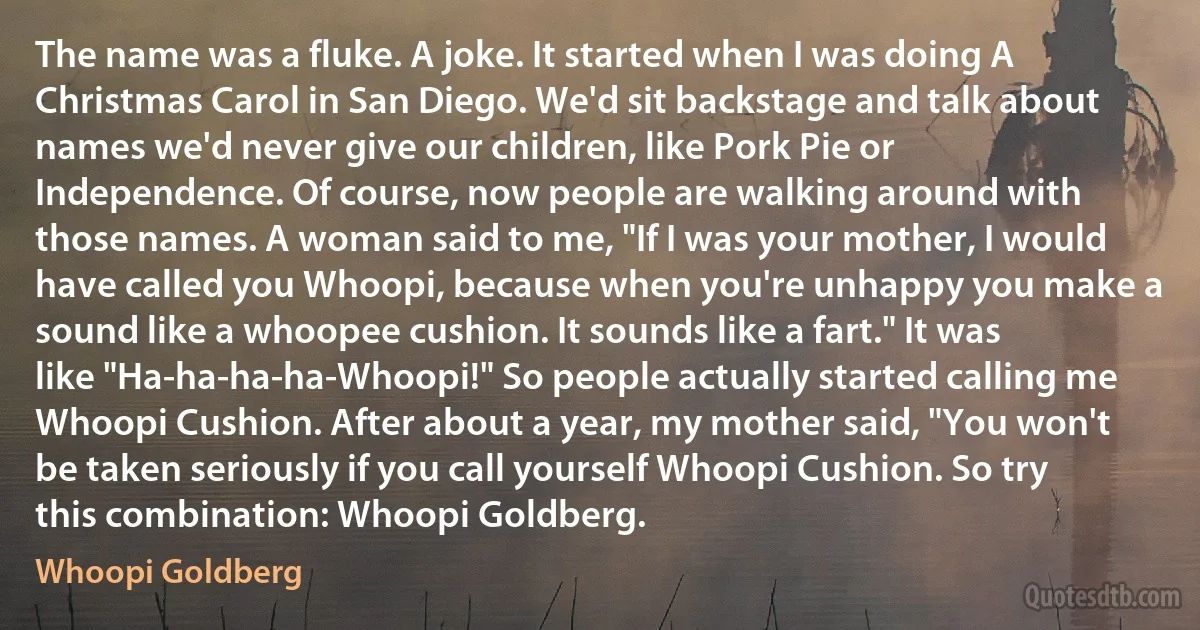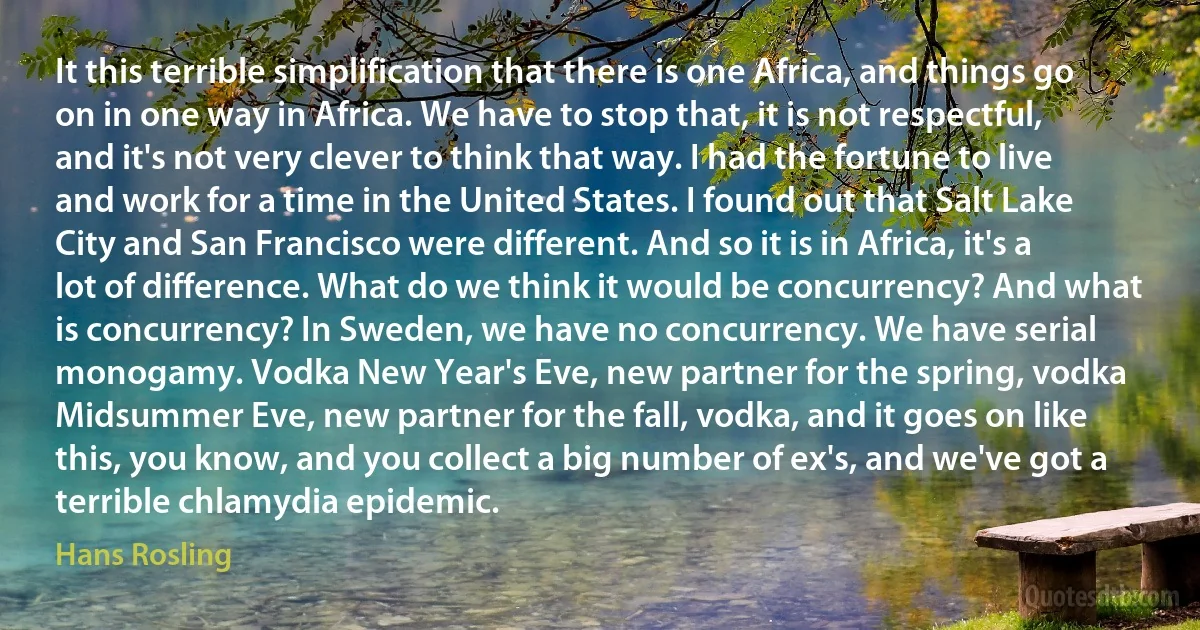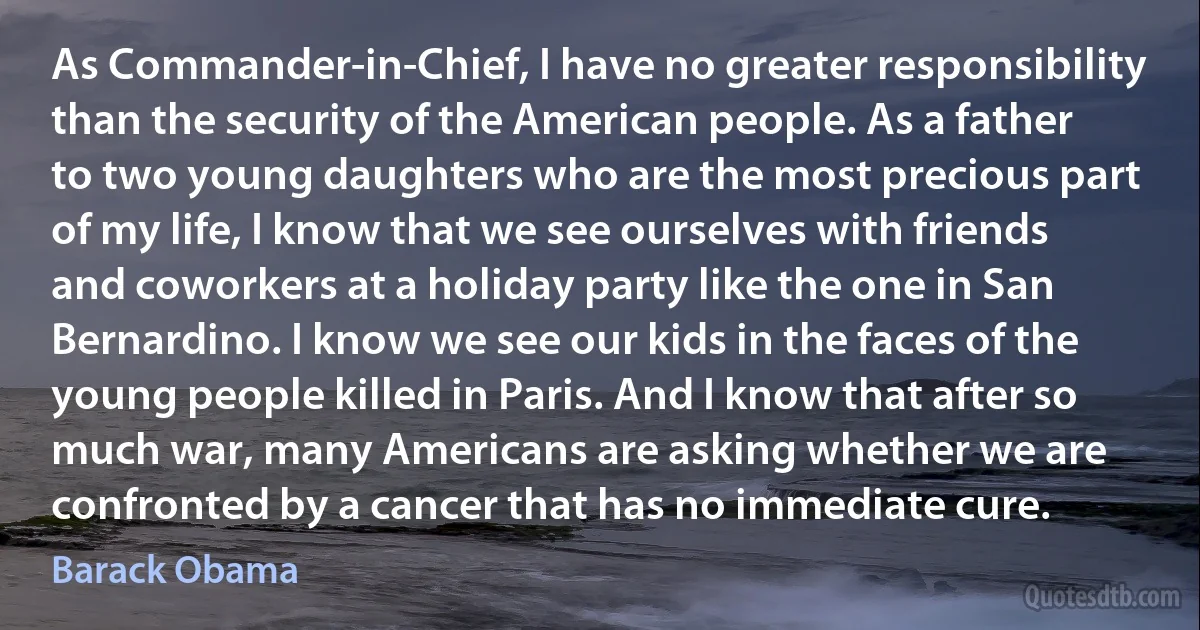San Quotes - page 7
As we made the high point off San Diego, Point Loma, we were greeted by the cheering presence of a lighthouse. As we swept round it in the early morning, there, before us, lay the little harbor of San Diego, its low spit of sand, where the water runs so deep; the opposite flats, where the Alert grounded in starting for home; the low hills, without trees, and almost without brush; the quiet little beach; but the chief objects, the hide houses, my eye looked for in vain. They were gone, all, and left no mark behind. I wished to be alone, so I let the other passengers go up to the town, and was quietly pulled ashore in a boat, and left to myself. The recollections and the emotions were all sad... and only sad.

Richard Henry Dana, Jr.
We bore round the point toward the old anchoring ground of the hide ships, and there, covering the sand hills and the valleys... flickering all over with the lamps of its streets and houses, lay a city of one hundred thousand inhabitants. The dock into which we drew, and the streets about it, were densely crowded with express wagons and handcarts... Though this crowd I made my way, along the well-built and well-light streets, as alive as by day, where boys in high-keyed voices where already crying the latest New York papers. When I awoke in the morning, and looked from my windows over the city of San Francisco, with its storehouses, towers, and steeples; its courthouses, theaters, and hospitals, its daily journals, its well-filled learned professions, its fortresses and lighthouses; its wharves and harbor... when I saw all these things, and reflected on what I once saw here, and what now surrounded me, I could scarcely keep my hold on reality at all, or the genuineness of anything.

Richard Henry Dana, Jr.
It had been the winter of 1835-6 that the ship, Alert, in her voyage for hides on the remote and almost unknown coast of California, floated into the vast solitude of the bay of San Francisco. All around was the stillness of nature. One vessel, a Russian, lay at anchor there, but during our whole stay not a sail came or went. Our trade was with remote missions, which sent hides to us in launches manned by their Indians... Over a region far beyond our sight there was no other human habitations, expect that an enterprising Yankee, years in advance of his time, had put up, on the rising ground above the landing, a shanty of rough boards, where he carried on a very small retail trade between the hide ships and the Indians. On the evening of Saturday, the thirteenth of August, 1859 (I again sailed into) the entrance to San Francisco, (now) the great center of worldwide commerce.

Richard Henry Dana, Jr.
I had just announced for the first time publicly on a radio show in San Francisco that I had done all the Keane paintings and not my ex-husband. And this, um, Bill Flang of the San Francisco Examiner thought that Walter and I should appear in Union Square and have a paint-off to decide who had done the paintings, since I was-said that I had done them. So, he arranged it, and LIFE magazine as there and all the different newspapers and t. v. stations and they, uh-some of them in the audience played "High Noon"-[laughs] And, of course, Walter didn't show up.

Margaret Keane
When we hear about rent control or gun control, we may think about rent or guns but the word that really matters is 'control.' That is what the political left is all about, as you can see by the incessant creation of new restrictions in places where they are strongly entrenched in power, such as San Francisco or New York.

Thomas Sowell
I knew the Classics, but disliked them. What I enjoyed were the romances of Old China, and especially stories of rebellions. I read the Yo Fei Chuan, Shui Hu Chuan, Fan T'ang, San Kuo, and Hsi Yu Chi, while still very young, and despite the vigilance of my old teacher, who hated these outlawed books and called them wicked. I used to read them in school, covering them up with a Classic when the teacher walked past. So also did most of my schoolmates. We learned many of the stories almost by heart, and discussed and re-discussed them many times. We knew more of them than the old men of the village, who also loved them and used to exchange stories with us. I believe that perhaps I was much influenced by such books, read at an impressionable age.

Mao Zedong
I listened to the San Juan games on the radio and my idol was Monte Irvin, because he not only was a good hitter but had a very good arm. Even my friends called me Monte Irvin as a nickname. I never thought I'd be good enough to play pro ball. I always felt you had to be like Superman to play professionally. But in 1952, at age 17, I signed a contract with Santurce. My bonus? It was $500 and one glove. They also paid me $30 a week. Two years later – when I was 19 – there were eight or nine big league teams after me and I signed with the Dodgers for a $10,000 bonus. This was a big day in my life.

Roberto Clemente
How do you measure a man? How can you compare one man with another unless you've seen them both? I cannot tell about other men who played long ago. I saw Mays. To me, Willie Mays is the greatest who ever played. But he is forty and has had his days – he is tired. San Francisco is all tired. For them it was not easy. For twenty days, they were in a tight pennant race and don't know where they are. Mentally, they were going to be tight. You could see Mays is tired.

Roberto Clemente
This weekend, our hearts are with the people of San Bernardino - another American community shattered by unspeakable violence. We salute the first responders - the police, the SWAT teams, the EMTs - who responded so quickly, with such courage, and saved lives. We pray for the injured as they fight to recover from their wounds.

Barack Obama
The FBI is still gathering the facts about what happened in San Bernardino, but here is what we know. The victims were brutally murdered and injured by one of their coworkers and his wife. So far, we have no evidence that the killers were directed by a terrorist organization overseas, or that they were part of a broader conspiracy here at home. But it is clear that the two of them had gone down the dark path of radicalization, embracing a perverted interpretation of Islam that calls for war against America and the West. They had stockpiled assault weapons, ammunition, and pipe bombs. So this was an act of terrorism, designed to kill innocent people.

Barack Obama
In many ways, fear is the force that stands between human beings and their dreams. Fear of conflict and the weapons of war. Fear of a future that is different from the past. Fear of changes that are reordering our societies and economy. Fear of people who look different, or come from a different place, or worship in a different way. In some of her darkest moments, when Aung San Suu Kyi was imprisoned, she wrote an essay about freedom from fear. She said fear of losing corrupts those who wield it -- "Fear of losing power corrupts those who wield it, and fear of the scourge of power corrupts those who are subject to it.” That's the fear that you can leave behind. We see that chance in leaders who are beginning to understand that power comes from appealing to people's hopes, not people's fears.

Barack Obama
We must promote the idea of secession. Or more specifically, we must promote the idea of a world composed of tens of thousands of distinct districts, regions, and cantons, and hundred of thousands of independent free cities such as the present day oddities of Monaco, Andorra, San Marino, Liechtenstein, Hong Kong, and Singapore. Greatly increased opportunities for economically motivated migration would thus result, and the world would be one of small [classically] liberal governments economically integrated through free trade and an international commodity money such as gold.

Hans-Hermann Hoppe
We won the tie in Barcelona but everyone talks about Barcelona winning and says we parked the bus in front of the goal. We didn't park the bus, we parked the plane and we did it for two reasons. One, because we only had 10 men and two, because we beat them 3-1 at San Siro, not by parking the bus, or the boat or the airplane but by smashing them.

José Mourinho



